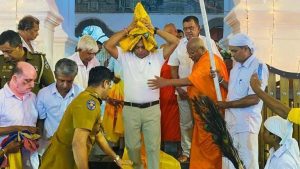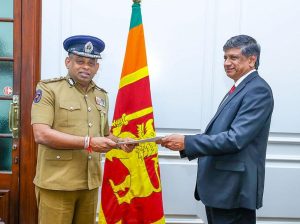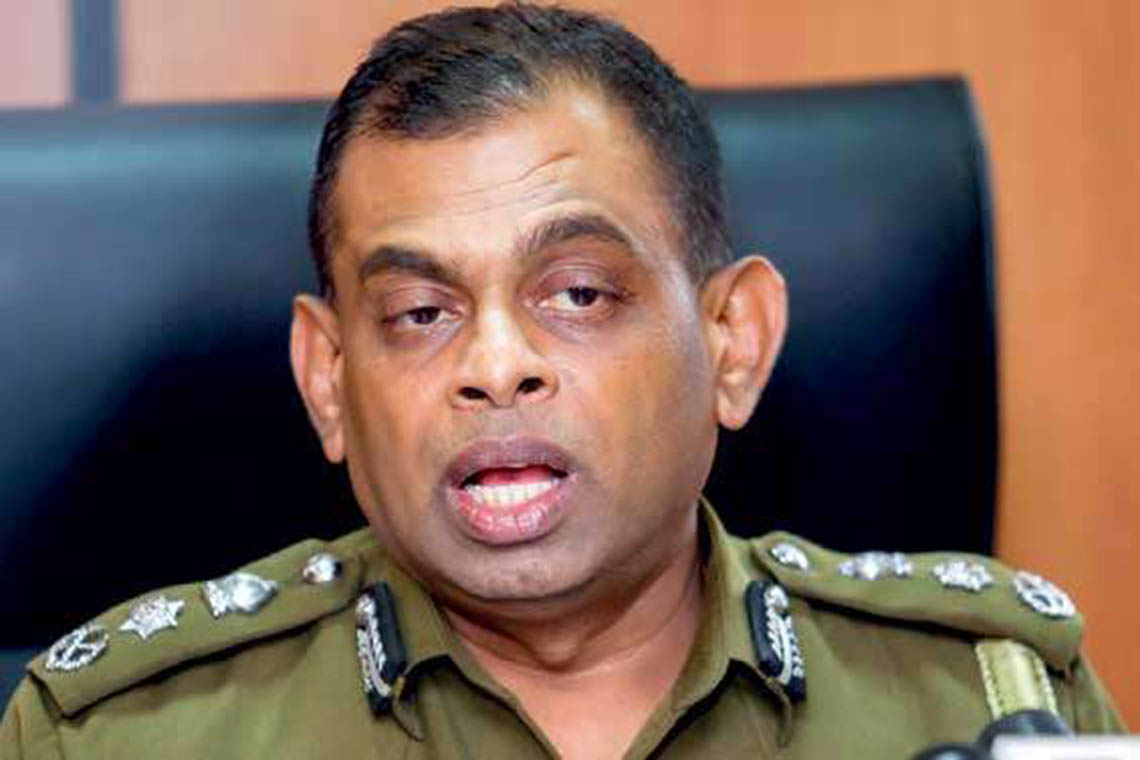
The Supreme Court has issued an interim order restraining Deshabandu Tennakoon from functioning as the Inspector General of Police (IGP) until the final determination of nine Fundamental Rights (FR) applications challenging his appointment. This order, issued by a three-judge bench comprising Justice Yasantha Kodagoda, Justice Achala Wengappuli, and Justice Mahinda Samayawardena, came after considering the petitions filed against Tennakoon’s appointment.
Case in Full
The bench granted leave to proceed with the petitions, indicating that the case will be heard in full. The petitioners are represented by a team of prominent legal professionals, including Geoffrey Alagaratnam PC, Upul Jayasuriya PC, Shamil Perera PC, Saliya Pieris PC, Viran Corea PC, Senior Counsel Suren Fernando, Lakshan Dias, Thishya Weragoda, and Vinura Kularatne. Romesh de Silva PC appeared for Deshabandu Tennakoon, while Senior Additional Solicitor General Nerin Pulle represented the Attorney General.
The petitions were filed by several parties, including Cardinal Malcolm Ranjith, challenging Tennakoon’s appointment as IGP. The petitioners argued that Tennakoon’s previous conduct as Senior Deputy Inspector General of Police (SDIG) of the Western Province, particularly during the 2019 Easter attacks and the attack on the ‘GotaGoGama’ protest site at Galle Face Green, demonstrated a neglect of duty and violation of human rights. They stressed that the position of IGP, which is crucial for the enforcement of law in the country, should be held by someone with humane qualities and a commitment to justice.
Process Flawed
The petitioners also claimed that the appointment process for the IGP was flawed, lacking proper approval from the Constitutional Council. They called for the Supreme Court to invalidate Tennakoon’s appointment, citing irregularities in the voting process within the Constitutional Council. Specifically, they accused Speaker Mahinda Yapa Abeywardena of using his decisive vote unconstitutionally to confirm Tennakoon’s appointment when the council was divided.
The Supreme Court’s interim order also directs the President to appoint a suitable person to act as IGP during the period the order is in force against Tennakoon. This step underscores the court’s concern about maintaining the integrity and functionality of the police force while the legal challenges are being resolved.

The nine petitions against Tennakoon’s appointment were reviewed multiple times by the court. The final decision to issue the interim order was reached after the court concluded its considerations on July 18, and it was announced on July 24. The respondents in the case include the Speaker of Parliament, members of the Constitutional Council, IGP Tennakoon, and the Attorney General, among others.
Significant Attention
The controversy surrounding Tennakoon’s appointment has garnered significant attention, including concerns raised by UN High Commissioner for Human Rights Volker Turk. Turk highlighted the Supreme Court’s findings implicating Tennakoon in the torture of an individual in 2010, further questioning his suitability for the role of IGP.
This case not only challenges the appointment of a high-ranking police official but also brings to light broader issues of accountability and human rights within Sri Lanka’s law enforcement agencies. The interim order by the Supreme Court is a critical step in addressing these concerns and ensuring that the appointment process adheres to constitutional and legal standards. As the case proceeds, it will be closely watched for its implications on the country’s legal and political landscape.







